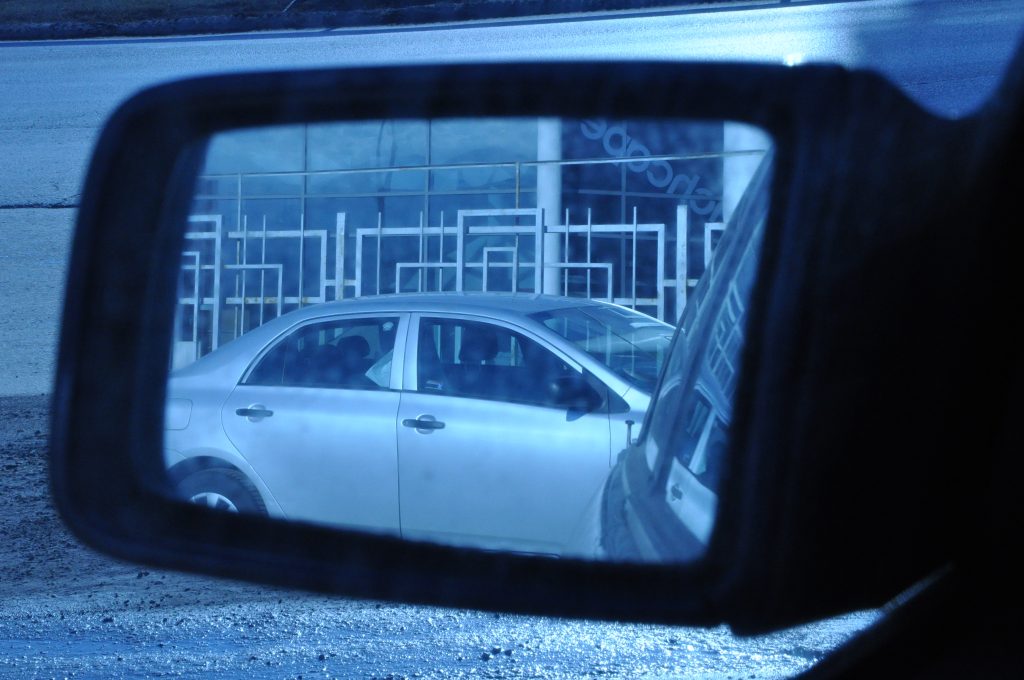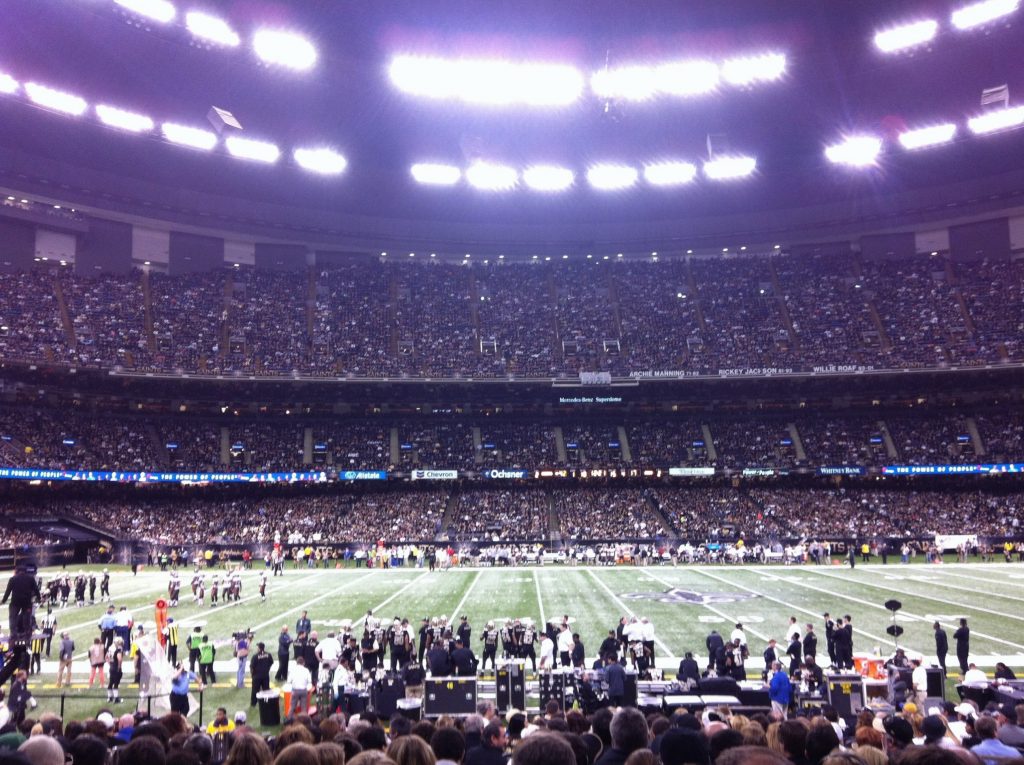 In Louisiana, uninsured motorist coverage is mandatory. It seeks to protect drivers from motorists with no or insufficient liability coverage to pay for the damage they cause in accidents. In Louisiana, uninsured motorist coverage guarantees that anyone who purchases insurance on their car will automatically benefit from uninsured motorist coverage equal to the liability limits. This does not mean, however, that insurance companies can’t limit the scope of their uninsured motorist coverage. When coverage is denied, and lawsuits are filed, often times the issue is whether the accident falls within the insurer’s policy. A recent lawsuit in the Louisiana Fifth Circuit Court of Appeal is illustrative.
In Louisiana, uninsured motorist coverage is mandatory. It seeks to protect drivers from motorists with no or insufficient liability coverage to pay for the damage they cause in accidents. In Louisiana, uninsured motorist coverage guarantees that anyone who purchases insurance on their car will automatically benefit from uninsured motorist coverage equal to the liability limits. This does not mean, however, that insurance companies can’t limit the scope of their uninsured motorist coverage. When coverage is denied, and lawsuits are filed, often times the issue is whether the accident falls within the insurer’s policy. A recent lawsuit in the Louisiana Fifth Circuit Court of Appeal is illustrative.
Jorge Alicea was traveling eastbound on I-10 in Jefferson Parish, Louisiana on March 30, 2011. It was 5:00 a.m. and dark. The weather was clear and traffic was mild. Suddenly, Mr. Alicea’s Dodge Caliber rear-ended a Chevrolet 6000 driven by Jared Summers. Mr. Alicea filed a lawsuit against Mr. Summers alleging that Mr. Summers suddenly stopped because of an accident ahead of him caused by an unknown driver, causing a collision between Mr. Alicea and Mr. Summers. Mr. Alicea was insured by GEICO General Insurance Company, whom Mr. Alicea named as a defendant in the lawsuit.
GEICO responded to the lawsuit by filing a motion for summary judgment, seeking to have the case thrown out before trial. In its motion for summary judgment, GEICO argued pleadings and initial discovery showed that GEICO owed Mr. Alicea no uninsured motorist coverage because Mr. Alicea was at fault in causing the accident when he rear-ended summers. GEICO’s uninsured motorist policy requires covers only incidents corroborated by independent and disinterested witnesses who establish the injury was caused by an unidentified or uninsured/underinsured driver. The Trial Court granted GEICO’s motion for summary judgment, which Mr. Alicea appealed.
 Louisiana Personal Injury Lawyer Blog
Louisiana Personal Injury Lawyer Blog


 Kenneth White’s road trip from Monroe to Shreveport, Louisiana wasn’t exactly uneventful. The Monroe man was involved in a traffic accident that led to a legal battle between insurance companies. White’s insurance dispute led to a significant change in the law, as the Court of Appeal held that a major auto carrier’s contract provision violated public policy.
Kenneth White’s road trip from Monroe to Shreveport, Louisiana wasn’t exactly uneventful. The Monroe man was involved in a traffic accident that led to a legal battle between insurance companies. White’s insurance dispute led to a significant change in the law, as the Court of Appeal held that a major auto carrier’s contract provision violated public policy. How familiar are you with your motorist insurance policy? Are you fully covered for uninsured/underinsured motorist coverage? In Louisiana, uninsured motorist coverage protects you if you’re in an accident with an at-fault driver who doesn’t carry liability insurance. Underinsured motorist coverage, on the other hand, steps in when you’re in an accident with an at-fault driver whose liability limits are too low to cover the damage or medical expenses. Every insurance policy in Louisiana is considered to include uninsured/underinsured motorist coverage unless it is validly rejected. In a recent case, the Louisiana Fourth Circuit Court of Appeal found that an electronic signature on an online form was valid to uphold an insurance policy.
How familiar are you with your motorist insurance policy? Are you fully covered for uninsured/underinsured motorist coverage? In Louisiana, uninsured motorist coverage protects you if you’re in an accident with an at-fault driver who doesn’t carry liability insurance. Underinsured motorist coverage, on the other hand, steps in when you’re in an accident with an at-fault driver whose liability limits are too low to cover the damage or medical expenses. Every insurance policy in Louisiana is considered to include uninsured/underinsured motorist coverage unless it is validly rejected. In a recent case, the Louisiana Fourth Circuit Court of Appeal found that an electronic signature on an online form was valid to uphold an insurance policy.  A unique feature of our American federal system is the separate yet intertwined system of state and federal courts. Sometimes a dispute may begin in a state court and end up in federal court. And sometimes, there may end up being parallel proceedings in both the state and federal systems. There are limits, however. A federal court can decline to hear an action if there is a parallel proceeding in the state court system. Recently, the Fifth Circuit Court of appeal was called upon to determine whether a district court erred when it declined to hear a declaratory action and related counterclaims.
A unique feature of our American federal system is the separate yet intertwined system of state and federal courts. Sometimes a dispute may begin in a state court and end up in federal court. And sometimes, there may end up being parallel proceedings in both the state and federal systems. There are limits, however. A federal court can decline to hear an action if there is a parallel proceeding in the state court system. Recently, the Fifth Circuit Court of appeal was called upon to determine whether a district court erred when it declined to hear a declaratory action and related counterclaims. Car accidents have become so commonplace in our society that many states require automobile and accident insurance. If and when you find yourself in the unfortunate situation of being in a car accident, you expect the party at fault to foot the bill. That’s where insurance steps in. As insurance claims are one of the most litigated issues nationwide, the interpretation of insurance laws is not always so clear. The following case examines two specific issues that ultimately needed to be settled in the highest court in Louisiana.
Car accidents have become so commonplace in our society that many states require automobile and accident insurance. If and when you find yourself in the unfortunate situation of being in a car accident, you expect the party at fault to foot the bill. That’s where insurance steps in. As insurance claims are one of the most litigated issues nationwide, the interpretation of insurance laws is not always so clear. The following case examines two specific issues that ultimately needed to be settled in the highest court in Louisiana. People get car insurance to protect themselves in the event of a car accident. It is thus important that one takes care to research and consider what insurance plan is best for one’s needs. Liability insurance is designed to protect a person who owns or drives a vehicle from the costs of a lawsuit that might happen if that vehicle is in an accident. Insurance contracts define the scope of what sort of vehicles or potential plaintiffs will be considered covered under the policy. Generally, courts prefer to preserve the “
People get car insurance to protect themselves in the event of a car accident. It is thus important that one takes care to research and consider what insurance plan is best for one’s needs. Liability insurance is designed to protect a person who owns or drives a vehicle from the costs of a lawsuit that might happen if that vehicle is in an accident. Insurance contracts define the scope of what sort of vehicles or potential plaintiffs will be considered covered under the policy. Generally, courts prefer to preserve the “ Insurance is such a lucrative business because while almost everyone will purchase some form of it, very few will ever make a claim against the insurance company, and even fewer will be successful. This allows insurance companies to generate huge profits on premiums paid by policyholders. Unsurprisingly, those who do make claims against insurance companies can count on being challenged at every turn, as the insurance companies will hire some of the best attorneys in order to avoid shelling out a dime to cover the policyholder. That is exactly what happened when Shelter Mutual Insurance Company became a party to a suit brought by a University of Louisiana Lafayette student after her professor, the insured, went on a tirade in class.
Insurance is such a lucrative business because while almost everyone will purchase some form of it, very few will ever make a claim against the insurance company, and even fewer will be successful. This allows insurance companies to generate huge profits on premiums paid by policyholders. Unsurprisingly, those who do make claims against insurance companies can count on being challenged at every turn, as the insurance companies will hire some of the best attorneys in order to avoid shelling out a dime to cover the policyholder. That is exactly what happened when Shelter Mutual Insurance Company became a party to a suit brought by a University of Louisiana Lafayette student after her professor, the insured, went on a tirade in class. Uninsured and underinsured motorist coverage is an insurance add-on that protects you against another person’s failure to maintain adequate insurance. This coverage can pay for injuries and property damage caused by another motorist who is not carrying adequate insurance. However, the policy will only cover those things set out in the agreement with the insurer. All insurance agreements are considered contracts under Louisiana law. Therefore, the rules governing contracts generally apply to insurance agreements.
Uninsured and underinsured motorist coverage is an insurance add-on that protects you against another person’s failure to maintain adequate insurance. This coverage can pay for injuries and property damage caused by another motorist who is not carrying adequate insurance. However, the policy will only cover those things set out in the agreement with the insurer. All insurance agreements are considered contracts under Louisiana law. Therefore, the rules governing contracts generally apply to insurance agreements. No one likes to deal with insurance matters. Shopping for insurance and understanding the terms of an insurance policy can be complex. Most people are happy to just pay their monthly premiums and know that they have insurance when they need it – and then hope they never need it at all. One woman learned how complex insurance matters can be when she was injured in July of 2012 when the Pontiac Sunfire that she was driving was involved in an auto accident in Ouachita Parish.
No one likes to deal with insurance matters. Shopping for insurance and understanding the terms of an insurance policy can be complex. Most people are happy to just pay their monthly premiums and know that they have insurance when they need it – and then hope they never need it at all. One woman learned how complex insurance matters can be when she was injured in July of 2012 when the Pontiac Sunfire that she was driving was involved in an auto accident in Ouachita Parish. Putting on a festival at the New Orleans Superdome is a lot of work. One vital part of that work is to confirm that the insurance policy actually covers the activities and location of the festival. Festival Productions, Inc. – New Orleans (“FPINO”) learned this lesson the costly and hard way. The Louisiana Fourth Circuit Court of Appeal’s decision shows the gaping hole in FPINO’s coverage that was entirely avoidable.
Putting on a festival at the New Orleans Superdome is a lot of work. One vital part of that work is to confirm that the insurance policy actually covers the activities and location of the festival. Festival Productions, Inc. – New Orleans (“FPINO”) learned this lesson the costly and hard way. The Louisiana Fourth Circuit Court of Appeal’s decision shows the gaping hole in FPINO’s coverage that was entirely avoidable.